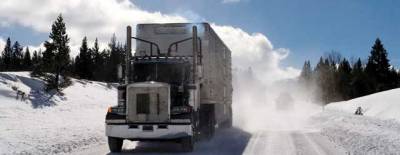CTR Northern

Here are some fun facts about some of CTR’s greatest customers:
So how do people in Nunavut, Canada’s newest territory, get around without roads? Where does their water and food come from? Is there really a Tim Hortons there? In the largest and least populated region of Canada–covering over 2 million square kilometres–here are 7 surprising facts about life in Nunavut.
There are No Roads in Nunavut
This isn’t entirely true. There are roads within all communities, but there are no roads to connect the 25 communities with each other (except for a 32 km stretch between Arctic Bay and Nanisivik). Instead of hopping on a bus, locals have a different form of public transit: small planes.
The only other way to reach communities is by boat. Some of those along the coast are included on small expedition cruise ship itineraries, like those run by Adventure Canada.
Taking a Taxi in Iqaluit
As the capital city of Nunavut, Iqaluit has a population hovering around 7,000, the largest in the territory. Even in the “big city,” though, there isn’t very far to go from one side of town to the other.
If you take a taxi, there is only one price: $6. The museum, legislative assembly, visitor’s centre and a few hotels are within walking distance of each other, but heading up to the newer part of the city or the neighbouring community of Apex (where you’ll find original Hudson’s Bay Co. buildings) is usually taken by taxi.
Recycling and Composting
There is no municipal recycling program in Nunavut. Some residents who travel outside of the territory on a regular basis actually take bottles and stacks of paper with them to recycle down south.
For those interested in growing their own produce, there is a small and seasonal greenhouse in downtown Iqaluit. Composting is done through one man with the Bill Mackenzie Humanitarian Society. He voluntarily visits those on his list every two weeks, picking up their compost and taking it to an old dump site where it is eventually used again in the greenhouse.
The Beloved Sealift
As you can imagine, getting groceries shipped up north can be inconsistent. There are grocery stores in each community, but prices are exceedingly high. A two litre carton of milk can ring in at $12.49, with most other items being about double the cost than we’re used to.
A sealift carrying dried goods arrives after the ice breaks up in the summer. Families who can afford it will pre-order their food for the rest of the year and wait for the sealift’s arrival so they can fill their cupboards.



